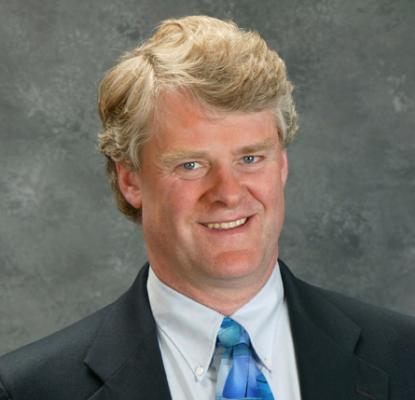Lee Lynd
From a very early age, Lee Lynd’s parents instilled in him the belief that one's purpose in life should be to contribute to society. The inaugural winner of the $100,000 Lemelson-MIT Award for Sustainability, Lynd is doing just that. This award recognizes inventors whose products and processes enhance economic opportunity and community well-being, while protecting and restoring the natural environment.
Lynd, who has invented advanced technologies for converting biomass feedstocks into motor vehicle fuels, traces his success as an inventor and entrepreneur to his childhood.
"I grew up in the sixties, when lots of people were acting on the assumption that they could change the world," said Lynd. "During my junior high years, I went to alternative schools with very little structure and essentially no academic program in any formal sense. I learned to take charge of my time and to make substantive choices at a young age." One of these choices was a decision to return to conventional high school, which he initiated as a 13-year-old. "I was the most motivated high school student you ever saw, because I was the only kid who had done something other than school and had chosen to be there," he said.
"My parents helped me believe I could make a difference both by giving me a lot of love and support and also by their example," said Lynd. His father, Staughton Lynd, was a college professor, co-director of the Freedom Schools in Mississippi, antiwar activist, and, more recently, a labor lawyer. His mother, Alice Lynd, was a draft counselor during the Vietnam War, also became a labor lawyer, and is now an active prisoners’ rights advocate. "My folks have spent their lives trying to make the world a better place and help the less fortunate," commented Lynd. "They are still at it as they near eighty.
"Following their lead, I entered college looking for a path of service, and I ended up focusing on sustainable energy sources," said Lynd. As a senior at Bates College, Lynd did his senior thesis on bacteria that convert plant biomass to ethanol—an endeavor that he has been involved with continuously since that time.
After Bates, Lynd pursued a master's degree in bacteriology at the University of Wisconsin in the lab. "I was not satisfied with a biologist's perspective," said Lynd. "In particular, I wanted to have a much better idea of what were the important things to work on in order for renewable fuel production to be practical." This brought him to enroll as a graduate student in engineering at Dartmouth College. "When I arrived, my professors said that distillation was the key obstacle. So, I worked on distillation."
It was at that time Lynd says he first thought of himself as an inventor. During a summer job working with disadvantaged students, he created a small-scale still to make corn ethanol. "I learned a lot from that hands-on experience that gave me ideas that contributed to several patents on energy-efficient distillation with advisor Hans Grethlein. "Once I became convinced that distillation was not a key constraint, I went back to working on improved microorganisms," said Lynd.
As Lynd finished his doctoral work at Dartmouth in the mid-eighties, oil prices dropped precipitously, funding for biomass energy became scarce, and most academics left the field. Lynd, however, persevered, and set about building a research group focused on biomass energy. "I owe whatever success I have had to two things, clarity of purpose and persistence," said Lynd.
Today, with the world again seeing promise in biomass-derived fuels, Lynd finds himself at the eye of a storm. In addition to many research contributions, Lynd co-founded Mascoma Corp. in 2006, a cellulosic biofuels start-up company in Cambridge, Mass., for which he is chief technology officer.
Lynd has received several awards including the National Science Foundation Presidential Young Investigator Award, the Charles A. Lindbergh Award in recognition of efforts to promote a balance between environmental preservation and technological advancement, and the Charles D. Scott Award for distinguished contributions to the field of biotechnology for fuels and chemicals.
Also a passionate advocate for the use of biofuels, Lynd has testified before Congress and advised the Executive Office of President Clinton on reducing greenhouse gas emissions from personal vehicles. He also collaborated on a report about using biofuels to reduce America’s oil dependence that was published in 2004 by the National Resources Defense Council.


